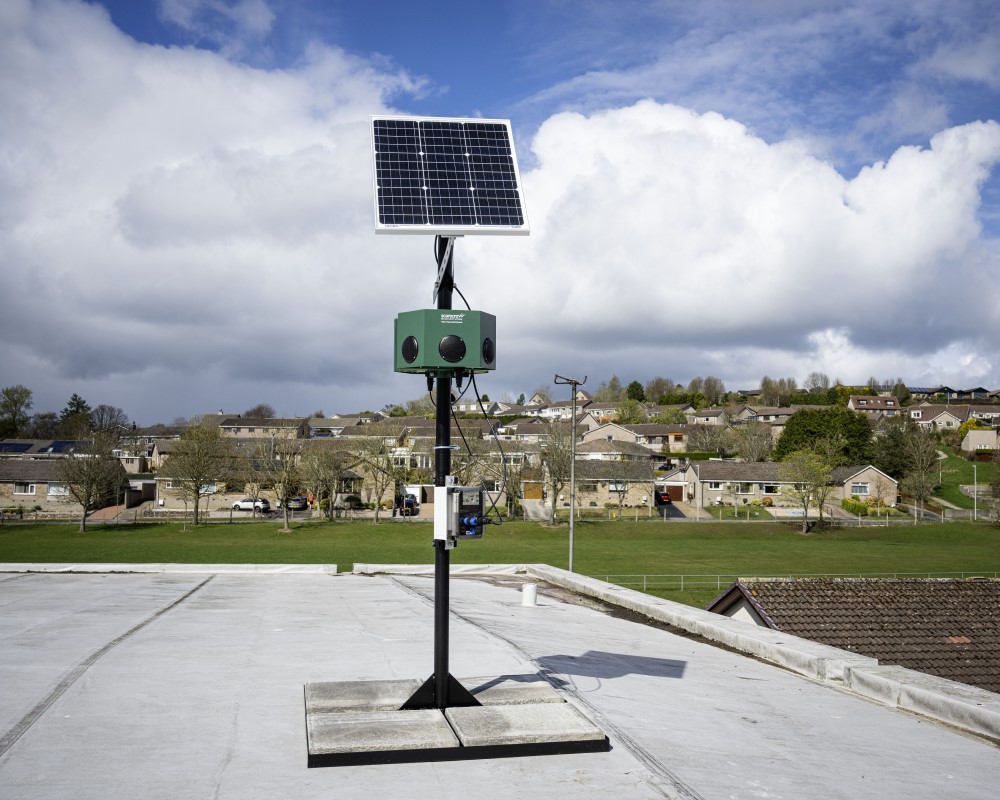Sonar gull deterrent trial
Aberdeenshire Council is to trial solar-powered sonar devices at three sites across the region in a bid to deter gulls from nesting.
The new technology has been installed over the last week at Westhill and Fishermoss primary schools and on units at West Shore Industrial Estate in Fraserburgh.
Comparisons will then be drawn from the numbers of nest and eggs removed in years previously from these sites and the volumes removed this year with the sonar units in place to measure its success.
The devices don’t hurt the birds and will be in place for around 10-12 weeks from this month.
If successful, the authority will consider introducing additional devices to cover other identified hot spot areas ahead of next year’s nesting season.
The announcement comes as the council once again encourages residents and visitors to help tackle the issues around urban gulls across the region.
The message comes as nesting season begins and is in response to continuing complaints relating to gulls from communities across Aberdeenshire including noise, aggressive behaviour, fouling and the feeding of gulls.
The council’s message is to help discourage gulls from nesting in our towns and villages and to ensure they once again start feeding on appropriate natural food sources.
Last year, the council received 40 complaints about people feeding gulls, with warning letters issued to all those responsible, however the council’s Protective Services currently have no statutory powers to take action against gulls and can only give advice to members of the public as to how they can help deal with the problem.
Gulls are protected under the Wildlife and Countryside Act 1981, which means it is illegal to capture, injure or destroy any wild bird, or interfere with its nest or eggs, unless you have a licence for each individual case.
It is the sole responsibility of the owner of property to protect it against gulls nesting on it and works must be undertaken by a pest controller or other professional body. Find more guidance on gull management at https://www.nature.scot/doc/guidance-gull-management

Cllr Alan Turner, chair of Aberdeenshire Council’s Infrastructure Services Committee, said: “We all know that gulls are opportunistic scavengers and I think every community across the region will have suffered from them grabbing any food scraps that we leave lying around – or worse – by those who exacerbate the issue by feeding them. With the better weather now approaching, we know that the vast majority of people will bin their rubbish appropriately when they are out and about in Aberdeenshire or take it home, and we thank those who do act responsibility. I’m pleased to see the introduction of the sonar devices at three locations this year and I very much hope that we will see positive results which could pave the way for further installations across the region in the coming years.”
Vice-chair Cllr Isobel Davidson added: “Gulls continue to be part of our rich natural environment and we have to remember that they are not the issue here – we are. Through feeding and littering, we’re generating a ready-made food supply for them which is encouraging them to fly into our communities and nest close to the food source. We have very limited powers as a local authority to take action against the gulls, and as we have said for many years now, the key to reducing attacks and the mess caused by gulls lies in reducing their ability to breed and limiting the supply of food. Now is also the time for property owners – both residential and commercial – to follow our lead and take action to gull-proof their buildings ahead of the nesting season.”
So how can you stop gulls from nesting?
- Help reduce or disrupt nesting colonies of birds by using deterrents such as fitting:
- Long spikes to nesting locations such as chimney-stacks
- Short spikes to nesting locations such as dormer roofs
- Wires to prevent gulls landing
How can you stop gulls from scavenging?
Gulls often hunt for meals in bins and take food when it is dropped on the ground. You can help reduce the amount of food available and stop them foraging by:
- Not feeding gulls
- Keeping food out of sight
- Storing your waste securely to prevent gulls getting into bags
- Disposing of your litter properly
You can download our Survivor’s Guide to living with Urban Gulls here: https://www.aberdeenshire.gov.uk/environment/environmental-health/pests/#gulls
